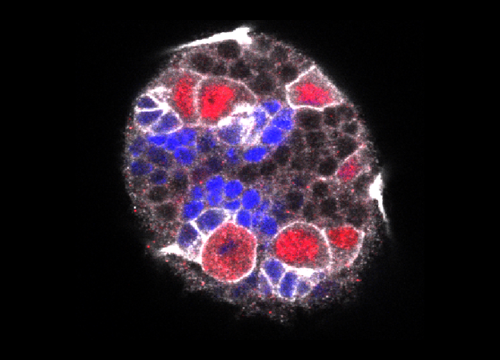
Drosophila neural stem cells (NSC), known as neuroblasts (NB), undergo asymmetric cell division throughout development producing neurons and glia. Dietary nutrients provide essential building blocks necessary for cell division thus acting as a major determinant of stem cell growth and proliferation. We have found that a subset of NBs, known as mushroom body neuroblasts (MB NBs), continue proliferation regardless of extrinsic dietary nutrient availability. Our research aims to understand the molecular mechanism regulating nutrient-independent NB proliferation. We have previously shown that Eyeless (Ey) is both necessary and sufficient to drive NB proliferation in the absence of dietary nutrients (Sipe CW et. al, 2017). In response to dietary nutrient withdrawal, MB NBs stop proliferating when Ey is knocked down and when Ey is overexpressed non-MB NBs proliferate ectopically. Here we report that Yorkie (Yki) also regulates NB proliferation in response to dietary nutrient availability. Yki is the downstream transcriptional coactivator that functions in the evolutionarily conserved Hippo signaling pathway. When Yki is knocked down, MB NBs also stop proliferation in response to dietary nutrient withdrawal and resumed proliferating upon refeeding. Upon expression of a constitutively active form of Yki, non-MB NBs continue cell division independent of dietary nutrient availability. This suggest that Yki like Ey regulates NB proliferation decision in response to nutrient availability. We am working to better understand the role of Yorkie and Hippo pathway activity in regulation of MB neurogenesis.